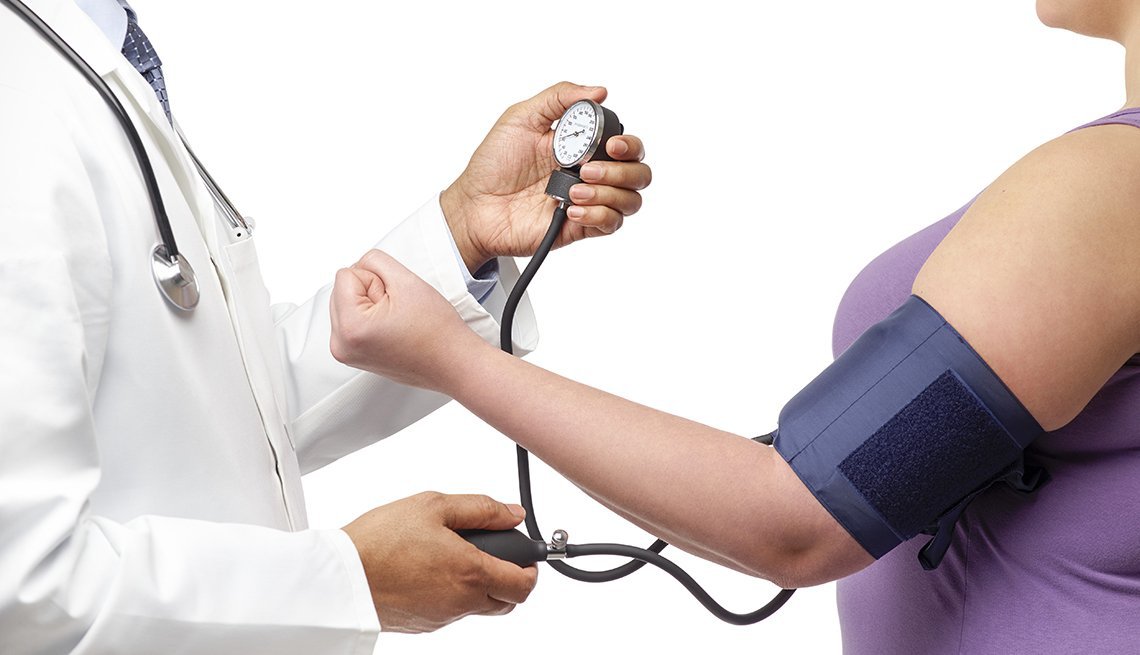Cut Your Odds of a Stroke

Medically Reviewed by James
Beckerman, MD, FACC
What Is a Stroke?
1 / 14
It happens when blood stops flowing to part of your brain. The cells begin to die, and you may have damage to areas that control muscles, memory, and speech.
Watch Your Blood Pressure
2 / 14
If you have high blood pressure and you don’t manage it well, your chances of getting a stroke go up. Ideally, your blood pressure should be under 120 over 80. If yours is too high, talk to your doctor about ways to change your diet and get more exercise. If that’s not enough to control it, they may prescribe medication to help.
Break a Sweat
3 / 14
Exercise helps you get to or stay at a healthy weight and keep your blood pressure where it should be — two things that can lower your odds of having a stroke. You’ll need to work out hard enough to break a sweat 5 days a week for about 30 minutes. Talk to your doctor first if you’re not in great health or haven’t been that active in a while.
Keep Stress in Check
4 / 14
Stress can make it more likely you’ll get a stroke, maybe because it causes inflammation in parts of your body. If you’re stressed at work, try some simple things to help dial it back. Get up and move around often, breathe deeply, and focus on one task at a time. Make your work area a calm space with plants and soft colors. And be sure to spend a healthy amount of time away from the office.
Lose Weight
5 / 14
Obesity and the health issues it can cause — diabetes and high blood pressure — boost your chances of stroke. You can lower the odds if you lose as few as 10 pounds. Try to keep your calorie count under 2,000 a day, and make exercise a regular thing.
RECOMMENDED
Have a (Single) Drink
6 / 14
Your risk of stroke may go down if you have one drink a day. But be careful: More than two, and it quickly shoots up. Heavy drinking can also lead to obesity, high blood pressure, and diabetes — all things that raise your odds of having a stroke.
Get Your Cholesterol Checked
7 / 14
High levels of LDL “bad” cholesterol and low levels of HDL “good” cholesterol can raise your chances of having plaque buildup in your arteries, which limits blood flow and can lead to a stroke. Cutting down on saturated and trans fats can help lower your LDL, and exercise can boost your HDL. If those don’t do the trick, your doctor may prescribe medication to help with your levels.
Pay Attention to Your Heartbeat
8 / 14
Atrial fibrillation (AFib), an irregular heart rhythm, makes you five times more likely to have a stroke. If you notice a racing or irregular heartbeat, see your doctor to find out what’s causing it. If it’s AFib, they might be able to treat you with medicine that lowers your heart rate and cuts the odds you’ll get blood clots. In some cases, they may try to reset your heart’s rhythm with medication or a brief electrical shock.
Manage Your Diabetes
9 / 14
This condition affects how your body uses glucose, an important source of energy for your brain and the cells that make up your muscles and tissues. It can raise your odds of having a stroke, so it’s important to watch your blood sugar carefully and follow your doctor’s instructions.
Fiber Up
10 / 14
The magic number here is 7: For every 7 grams of fiber you add to your daily diet, your stroke risk goes down by 7%. You should get about 25 grams a day: six to eight servings of whole grains, or eight to 10 servings of vegetables.
Eat (a Little) Dark Chocolate
11 / 14
Flavonoids are plant-based chemicals in cocoa that have all kinds of health benefits. For example, they can help with inflammation, and that can relieve pressure on your heart. Studies show a little dark chocolate a day helps prevent heart attacks and strokes in people with a higher chance of having heart disease. Just don’t overdo it because chocolate has sugar and saturated fat.
Don’t Smoke
12 / 14
Smoking makes your blood more likely to clot, thickens and narrows your blood vessels, and leads to the buildup of plaque — all of which make you more likely to have a stroke.
Choose the Right Foods
13 / 14
A balanced diet of fruits, veggies, fish, lean meats, and whole grains can help lower your cholesterol. That means plaque is less likely to build up in your arteries and form clots. It also can help protect you from other conditions that raise your odds of having a stroke, like diabetes and high blood pressure.
Take Your Meds
14 / 14
This sounds like an easy one, but a lot of people have a hard time with it. Take your medicine for blood pressure, diabetes, and heart health on time and as prescribed. If you’re concerned about side effects, talk to your doctor before skipping your medications or taking less than you’re supposed to.
Source: WebMD